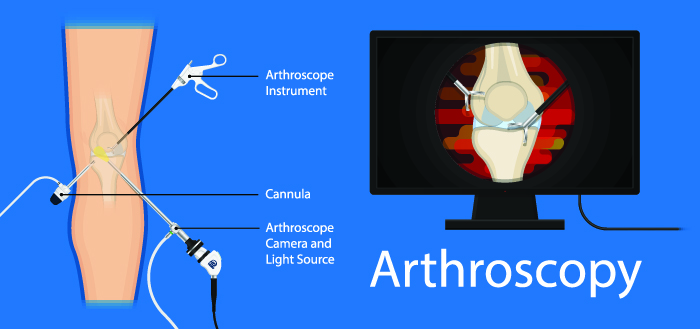Minimally Invasive Knee Replacement Surgery in Chunni-ganj, Kanpur
Minimally Invasive Knee Replacement Surgery is the most advanced and effective surgical procedure performed at Apollo Spectra, Kanpur, for people with severe arthritis, osteoarthritis, or other joint conditions. It's designed to provide patients with an alternative to traditional open surgery that can result in less pain, faster recovery time, and improved mobility.
What is Minimally Invasive Knee Replacement Surgery?
Minimally invasive surgery is a new and less invasive way of performing knee replacements. It’s minimally invasive because it doesn't require large incisions to access the joint space. This means patients recover faster with less blood loss and reduced risk of infection. Unlike traditional knee replacement surgery, it works in smaller surgical areas and is less painful.
This orthopedic procedure replaces the damaged surfaces of the joint with artificial components. It’s designed to preserve as much of the natural anatomy and function of your knee as possible.

What type of conditions are treated with Minimally Invasive Knee Replacement Surgery?
MIKRS is designed to reduce swelling, stiffness, and pain of osteoarthritis, and rheumatoid arthritis. It helps the patients avoid many of the risks associated with traditional open surgery such as blood loss, infection, and long recovery periods.
- The pain of osteoarthritis- The most common form of arthritis, osteoarthritis is a degenerative condition that causes the cartilage in your joints to break down. This can lead to joint stiffness and swelling, as well as pain and limited mobility. If left untreated, it can cause permanent damage to your joints. Minimally Invasive Knee Replacement Surgery is an effective option for those who are suffering from osteoarthritis pain.
- Rheumatoid arthritis pain- Rheumatoid arthritis is a condition that causes inflammation in the joints and can lead to joint destruction if left untreated. Fortunately, there are a variety of treatments available for this disease including Minimally Invasive Knee Replacement Surgery (MIKRS).
How is Minimally Invasive Knee Replacement Surgery Done?
Minimally Invasive Knee Replacement Surgery at Apollo Spectra, Kanpur, is performed by an orthopedic surgeon who has been trained in the technique. The surgeon makes small incisions in the skin near the knee and inserts a camera into one incision. A second incision may be made for other instruments such as forceps, drills, and scissors. These smaller cuts allow less tissue trauma than larger ones do. This surgical procedure replaces the knee joint with an artificial implant, such as a metal or plastic component.
Request an appointment at Apollo Spectra Hospitals, Kanpur
Call1860-500-2244 to book an appointment
Pros and Cons of Minimally Invasive Knee Replacement Surgery
Pros
- Better range of motion
- Less scarring on the skin
- No incisions in the back of the leg or along the side of your thigh
- Less blood loss
- Quicker recovery time
- Lower risk of infection
- Shorter hospital stay
- Less pain
Cons
- Anesthesia given during this operation leads to nausea, vomiting, or even death.
- Limited view of the joint due to smaller cut
- Patients have a greater chance of developing osteoarthritis
- Patients don’t undergo bone grafting
- Some may experience stiffness after their surgeries due to decreased mobility in their joints;
Discuss MIKRS pros and cons with your doctor first before making any decisions about your health.
How is Knee Pain Diagnosed?
The first step in diagnosing knee pain is to determine the location of the pain and determining whether or not there is an injury present. Your doctor will ask about any recent injuries, as well as other symptoms such as swelling or numbness in the area around your knee joint. They may also order imaging tests like X-rays, MRI scans, or CT scans to help diagnose.
The Bottom Line
Minimally invasive knee replacement surgery has become increasingly more popular over the last decade due to its low risk and high success rate. It is an excellent option for people who want relief from chronic pain without the risks associated with traditional open-knee surgery such as infection, blood clots, or nerve damage. The goal of this type of surgery is not only to relieve pain but also restore function so that patients can resume their normal activities like walking or running again after just weeks instead of months.
Recovery time after surgery varies depending on how much of the joint was replaced, but most people can return to work within three weeks and resume their normal activities within three months.
Traditional knee replacement surgery is a surgical procedure that replaces the damaged surfaces of your joint with artificial parts. Minimally invasive knee replacement surgery, on the other hand, is a less-invasive alternative to traditional knee replacement surgery.
The minimally invasive approach means there's less trauma and recovery time for patients who undergo this type of operation. This technique also reduces pain and swelling during recovery as well as post-operative complications such as blood clots in the legs or lungs.
It is meant for candidates who fall within the following criteria-
- Patients less than the age of 65 years
- Patients who are not obese and muscular
- Those who don’t suffer from severe osteoporosis
- Those well informed with the pros and cons of the surgery.
Symptoms
Our Top Specialities
NOTICE BOARD
CONTACT US
CONTACT US
 Book Appointment
Book Appointment


.svg)
.svg)
.svg)
.svg)








